2, January 2020
Pope’s bodyguards criticised over slapping incident 0
Pope Francis’s attempt to wrest himself from the grasp of an ardent follower this week have left some asking — where was the pontiff’s security detail?
Often dubbed the “People’s Pope,” Francis’s ability to engage with crowds — and his apparent relish in doing so — puts him in close proximity with the throngs who gather to greet him.
Whether taking selfies with the faithful, shaking hands, or blessing children, the head of 1.3 billion Catholics around the world is protected by bodyguards from a special corps charged with the pope’s security.
But on New Year’s Eve in Saint Peter’s Square, televised images showed a woman behind a barricade grabbing Francis’s hand, while three men in black can be seen in the background.
The Pope swats at the woman’s hand to free himself, before one of the men is seen restraining her hands. Francis later apologised for setting a “bad example.”
By Thursday, after the images circulated online, some people took to Twitter to question how the incident could have happened.
“The guy has a literal army to protect him and has to do his own slapping?” asked one Twitter user.
Another commented: “The Pope has a very lax security detail.”
The Vatican’s security department declined to comment.
One security expert however said bodyguards should have intervened earlier.
“It’s the Pope’s security team who should be apologising,” said the founder of Italy’s elite special police interventions unit, whose identity is protected but who goes by the name Commandant Alfa.
“The lady wouldn’t let go of the Pope’s hand, and he was forced to slap her hand a little bit in order to get out of the way,” Alfa told the AGI news agency. “But it shouldn’t have gotten to that point.”
The pope’s chief bodyguard and head of Vatican security, Domenico Giani, resigned in October after an internal security memo related to a Vatican financial probe was leaked to the press.
– Personal style –
Papal security became a top priority at the Vatican after the 1981 assassination attempt of pope Jean Paul II by Mehmet Ali Agca, a Turk, in Saint Peter’s Square. Heightened security measures that followed included making the Popemobile bulletproof and the addition of metal detectors on entering the square.
But even overly enthusiastic fans have posed security risks. In 2009, before a Christmas Eve Mass given by then pope Benedict XVI, a woman who later said she wanted to give the pontiff a hug jumped over a barricade and grabbed his robes, pulling the 82-year-old to the ground. Benedict was not injured but a French cardinal broke his leg in the melee.
When Francis became pope in 2013, his low-key style and desire to bring the Roman Catholic Church closer to the people posed new headaches for the Vatican’s elaborate security team, whose colourful Swiss Guards are the most visible members.
“You have to respect the personal style of each pope,” said Francis’s spokesman at the time, Federico Lombardi.
“It’s not for the heads of security to decide these things.”
Source: AFP
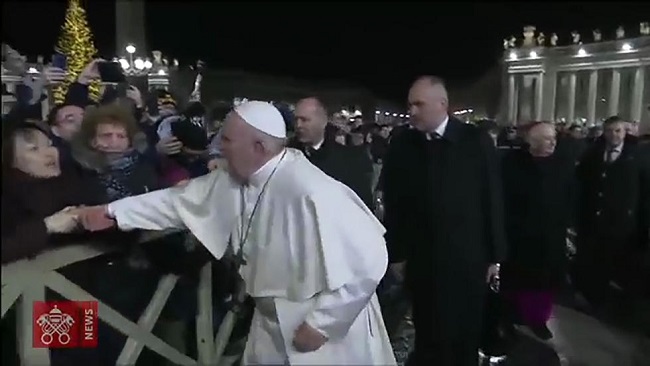
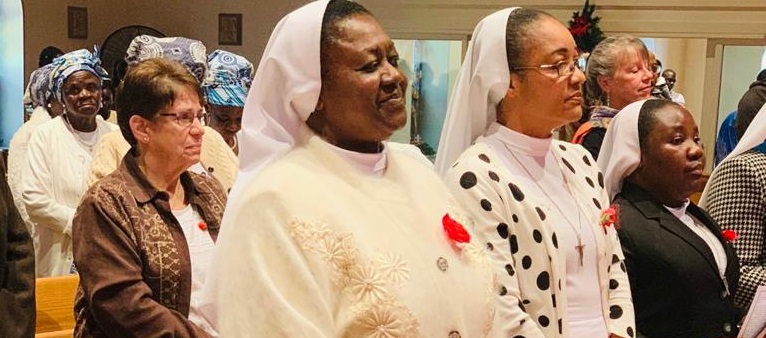
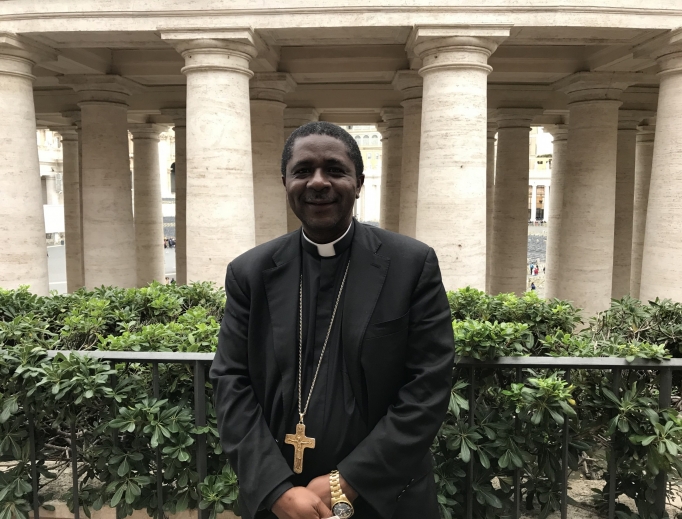
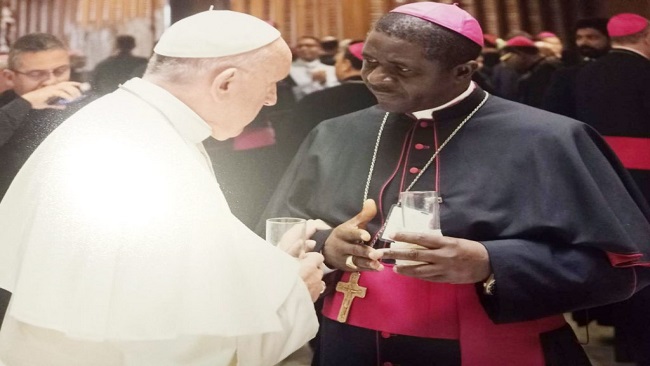
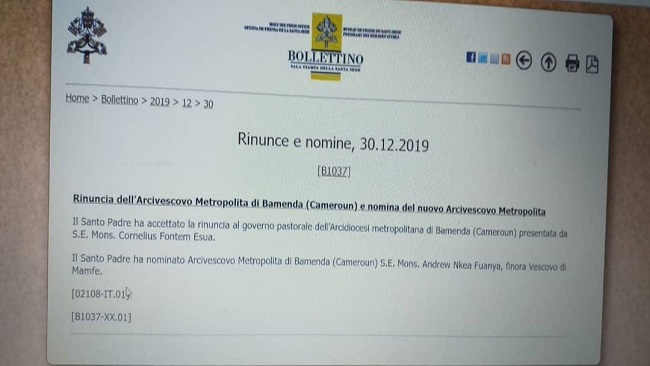
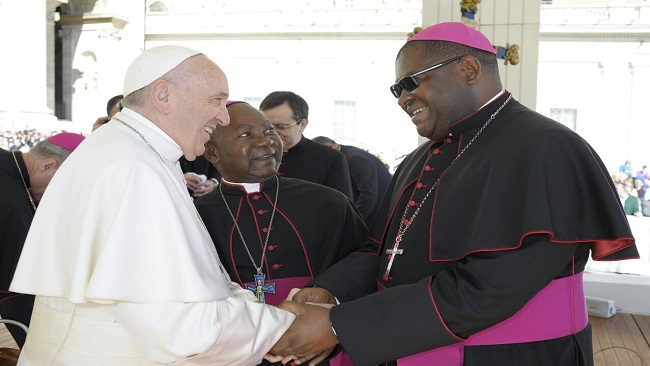




















13, January 2020
A Bombshell Book. Ratzinger and Sarah Ask Pope Francis Not to Make an Opening for Married Priests 0
They met. They wrote to each other. Precisely while “the world rumbled with the uproar created by a strange synod of the media that took the place of the real synod,” that of the Amazon.
And they decided to break the silence: “It was our sacred duty to recall the truth of the Catholic priesthood. In these difficult times, everyone must be afraid that one day God will address to him this harsh reproof: ‘Cursed are you, who did not say anything’.” An invective, this latter, taken from Saint Catherine of Siena, a tremendous flogger of popes.
Pope emeritus Benedict XVI and Guinean cardinal Robert Sarah sent this book of theirs to the presses shortly before Christmas, and here it is coming out in France in mid-January, published by Fayard with the title: “From the depth of our hearts,” and thus even before Pope Francis has dictated the conclusions of that Amazonian synod which in reality, more than on rivers and forests, was a furious discussion on the future of the Catholic priesthood, if celibate or not, and if open in the future to women.
It will be a serious problem, in fact, for Francis to make an opening for the married priesthood and the female diaconate after his predecessor and a cardinal of profound doctrine and of radiant holiness of life like Sarah have taken such a clear and powerfully argued position in support of priestly celibacy, addressing themselves to the reigning pope almost in the words of an ultimatum, through the pen of the one but with the full agreement of the other:
“There is an ontological-sacramental bond between the priesthood and celibacy. Any curtailment of this bond would mean calling into question the magisterium of the council and of the popes Paul VI, John Paul II, and Benedict XVI. I humbly beg Pope Francis to protect us definitively from such an eventuality, setting his veto against any weakening of the law of priestly celibacy, even if limited to one region or another.”
The book, 180 pages long, after a preface by editor Nicolas Diat, is divided into four chapters.
The first, entitled “What are you afraid of?”, is an introduction signed jointly by the two authors, dated September 2019.
The second is by Joseph Ratzinger, is of a biblical and theological slant and has the title: “The Catholic priesthood.” It bears the date of September 17, before the synod began.
The third is by Cardinal Sarah and is entitled: “To love right up to the end. An ecclesiological and pastoral look at priestly celibacy.” It has the date of November 25, one month after the end of the synod, in which the author participated assiduously.
The fourth is the joint conclusion of the two authors, with the title: “In the shadow of the cross,” and with the date of December 3.
In the chapter that he signed, Ratzinger mainly intends to bring to light “the profound unity between the two Testaments, through the passage from the Temple of stone to the Temple that is the body of Christ.”
And he applies this hermeneutic to three biblical texts, from which he derives the Christian notion of celibate priesthood.
The first is a passage from Psalm 16: “The Lord is the portion of my inheritance and of my cup…”
The third is these words of Jesus in the gospel of John 17:17: “Sanctify them in truth, your word is truth.”
While the second is two passages from Deuteronomy (10:8 and 18:5-8) incorporated into Eucharistic prayer II: “We give you thanks admitting us into your presence to perform the priestly service.”
To illustrate the meaning of these words, Ratzinger cites almost in its entirety the homily he gave at Saint Peter’s on the morning of March 20 2008, Holy Thursday, during the Mass of the sacred chrism with which priests are ordained.
A homily reproduced below, as a sample of the whole book and of its pages directly dedicated to the question of celibacy.
*
“We do not invent the Church as we would like it to be”
by Joseph Ratzinger / Benedict XVI
Holy Thursday is an occasion for us to ask ourselves over and over again: to what did we say our “yes”? What does this “being a priest of Jesus Christ” mean? The Second Canon of our Missal, which was probably compiled in Rome already at the end of the second century, describes the essence of the priestly ministry with the words with which, in the Book of Deuteronomy (18: 5, 7), the essence of the Old Testament priesthood is described: astare coram te et tibi ministrare [“to stand and minister in the name of the Lord”]. There are therefore two duties that define the essence of the priestly ministry: in the first place, “to stand in his [the Lord’s] presence”.
In the Book of Deuteronomy this is read in the context of the preceding disposition, according to which priests do not receive any portion of land in the Holy Land – they live of God and for God. They did not attend to the usual work necessary to sustain daily life. Their profession was to “stand in the Lord’s presence” – to look to him, to be there for him. Hence, ultimately, the word indicated a life in God’s presence, and with this also a ministry of representing others. As the others cultivated the land, from which the priest also lived, so he kept the world open to God, he had to live with his gaze on him.
Now if this word is found in the Canon of the Mass immediately after the consecration of the gifts, after the entrance of the Lord in the assembly of prayer, then for us this points to being before the Lord present, that is, it indicates the Eucharist as the centre of priestly life. But here too, the meaning is deeper. During Lent the hymn that introduces the Office of Readings of the Liturgy of the Hours – the Office that monks once recited during the night vigil before God and for humanity – one of the duties of Lent is described with the imperative: arctius perstemus in custodia – we must be even more intensely alert. In the tradition of Syrian monasticism, monks were qualified as “those who remained standing”. This standing was an expression of vigilance.
What was considered here as a duty of the monks, we can rightly see also as an expression of the priestly mission and as a correct interpretation of the word of Deuteronomy: the priest must be on the watch. He must be on his guard in the face of the imminent powers of evil. He must keep the world awake for God. He must be the one who remains standing: upright before the trends of time. Upright in truth. Upright in the commitment for good. Being before the Lord must always also include, at its depths, responsibility for humanity to the Lord, who in his turn takes on the burden of all of us to the Father. And it must be a taking on of him, of Christ, of his word, his truth, his love. The priest must be upright, fearless and prepared to sustain even offences for the Lord, as referred to in the Acts of the Apostles: they were “rejoicing that they were counted worthy to suffer dishonour for the name” (5: 41) of Jesus.
Now let us move on to the second word that the Second Canon repeats from the Old Testament text – “to stand in your presence and serve you”. The priest must be an upright person, vigilant, a person who remains standing. Service is then added to all this.
In the Old Testament text this word has an essentially ritualistic meaning: all acts of worship foreseen by the Law are the priests’ duty. But this action, according to the rite, was classified as service, as a duty of service, and thus it explains in what spirit this activity must take place.
With the assumption of the word “serve” in the Canon, the liturgical meaning of this term was adopted in a certain way – to conform with the novelty of the Christian cult. What the priest does at that moment, in the Eucharistic celebration, is to serve, to fulfil a service to God and a service to humanity. The cult that Christ rendered to the Father was the giving of himself to the end for humanity. Into this cult, this service, the priest must insert himself.
Thus, the word “serve” contains many dimensions. In the first place, part of it is certainly the correct celebration of the liturgy and of the sacraments in general, accomplished through interior participation. We must learn to increasingly understand the sacred liturgy in all its essence, to develop a living familiarity with it, so that it becomes the soul of our daily life. It is then that we celebrate in the correct way; it is then that the ars celebrandi, the art of celebrating, emerges by itself. In this art there must be nothing artificial.
If the liturgy is the central duty of the priest, this also means that prayer must be a primary reality, to be learned ever anew and ever more deeply at the school of Christ and of the Saints of all the ages. Since the Christian liturgy by its nature is also always a proclamation, we must be people who are familiar with the Word of God, love it and live by it: only then can we explain it in an adequate way. “To serve the Lord” – priestly service precisely also means to learn to know the Lord in his Word and to make it known to all those he entrusts to us.
Lastly, two other aspects are part of service. No one is closer to his master than the servant who has access to the most private dimensions of his life. In this sense “to serve” means closeness, it requires familiarity. This familiarity also bears a danger: when we continually encounter the sacred it risks becoming habitual for us.
In this way, reverential fear is extinguished. Conditioned by all our habits we no longer perceive the great, new and surprising fact that he himself is present, speaks to us, gives himself to us. We must ceaselessly struggle against this becoming accustomed to the extraordinary reality, against the indifference of the heart, always recognizing our insufficiency anew and the grace that there is in the fact that he consigned himself into our hands. To serve means to draw near, but above all it also means obedience.
The servant is under the word: “not my will, but thine, be done” (Lk 22: 42). With this word Jesus, in the Garden of Olives, has resolved the decisive battle against sin, against the rebellion of the sinful heart. Adam’s sin consisted precisely in the fact that he wanted to accomplish his own will and not God’s. Humanity’s temptation is always to want to be totally autonomous, to follow its own will alone and to maintain that only in this way will we be free; that only thanks to a similarly unlimited freedom would man be completely man. But this is precisely how we pit ourselves against the truth. Because the truth is that we must share our freedom with others and we can be free only in communion with them.
This shared freedom can be true freedom only if we enter into what constitutes the very measure of freedom, if we enter into God’s will. This fundamental obedience that is part of the human being – a person cannot be merely for and by himself – becomes still more concrete in the priest: we do not preach ourselves, but him and his Word, which we could not have invented ourselves. We proclaim the Word of Christ in the correct way only in communion with his Body.
Our obedience is a believing with the Church, a thinking and speaking with the Church, serving through her. What Jesus predicted to Peter also always applies: “You will be taken where you do not want to go”. This letting oneself be guided where one does not want to be led is an essential dimension of our service, and it is exactly what makes us free. In this being guided, which can be contrary to our ideas and plans, we experience something new – the wealth of God’s love.
“To stand in his presence and serve him”: Jesus Christ as the true High Priest of the world has conferred to these words a previously unimaginable depth. He, who as Son was and is the Lord, has willed to become that Servant of God which the vision of the Book of the Prophet Isaiah had foreseen. He has willed to be the Servant of all. He has portrayed the whole of his high priesthood in the gesture of the washing of the feet.
With the gesture of love to the end he washes our dirty feet, with the humility of his service he purifies us from the illness of our pride. Thus, he makes us able to become partakers of God’s banquet. He has descended, and the true ascent of man is now accomplished in our descending with him and toward him. His elevation is the Cross. It is the deepest descent and, as love pushed to the end, it is at the same time the culmination of the ascent, the true “elevation” of humanity.
“To stand in his presence and serve him”: this now means to enter into his call to serve God. The Eucharist as the presence of the descent and ascent of Christ thus always recalls, beyond itself, the many ways of service through love of neighbour. Let us ask the Lord on this day for the gift to be able to say again in this sense our “yes” to his call: “Here am I! Send me” (Is 6: 8). Amen.
Culled from L’Espresso